Nestled in the heart of the Caribbean, the marine and coastal environments of the Turks and Caicos Islands (TCI) face complex issues because of increasing pressure from human activities and climate change impacts. These diverse and valuable environments provide benefits which underpin the Islands’ economy, livelihoods, and resilience against change. The ability of the natural environment to continue to provide these benefits to local, regional, and global populations requires access to the best available evidence to inform decision making, from community to Ministerial levels.
An international partnership led by JNCC was awarded Darwin Plus funding in 2020 to undertake the following 3-year project: Turks and Caicos Islands technical assistance programme for effective coastal-marine management (DPLUS119). JNCC, the Turks and Caicos Islands Government Department of Environment and Coastal Resources (DECR), and the South Atlantic Environmental Research Institute (SAERI) worked together to improve the evidence base to support sustainable coastal and marine management approaches in the islands. This project concluded in July 2023.
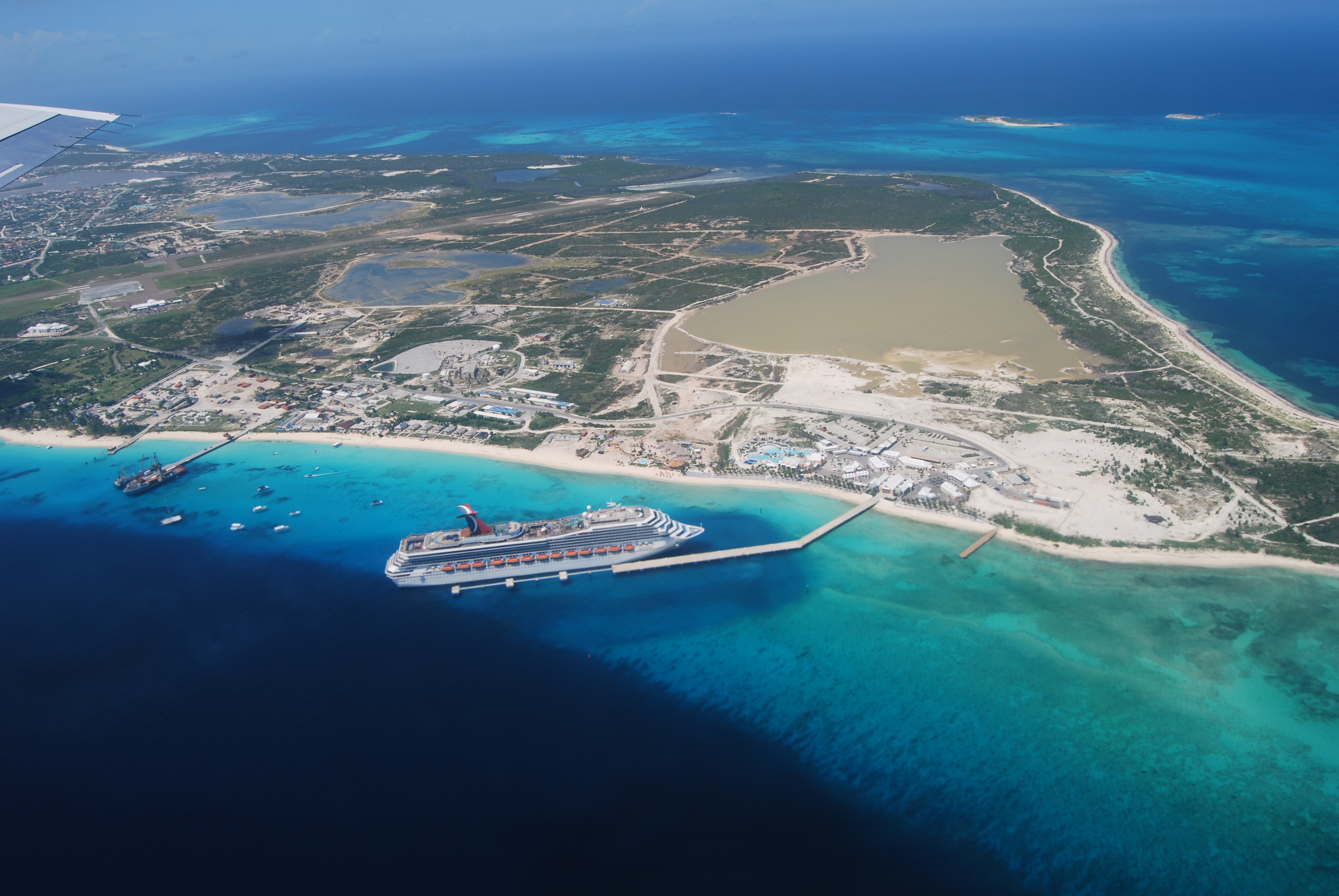
Throughout this project, DECR technical leads worked with JNCC scientific experts to build capacity in using information management systems, developing environmental indicators, and conducting environmental status assessments for coastal and marine environments.
Stakeholder engagement was also conducted with local communities, science professionals, and decision-makers to raise awareness of the services and value provided by the coastal and marine environment of the Turks and Caicos Islands and to share the project outputs.
Project Overview
Background
The 2019 Safeguarding the environment in British Overseas Territories: call for evidence highlighted a need to improve project connectivity and stakeholder capability for using project outputs to enhance the long-term effectiveness of UK Government investment across the Territories. This project takes into account these findings and responds to the request from the Government of the Turks and Caicos Islands to build technical capacity on the island to support sustainable coastal-marine management approaches.
Objectives
The Turks and Caicos Islands technical assistance programme had two core objectives:
- To develop tools and methods to enhance the evidence base needed to support status assessment and management programmes in coastal-marine environments.
- To provide support and build capacity in using and applying data, tools, and methods developed under the project through an effective knowledge sharing programme.
JNCC, DECR, and SAERI worked collaboratively and built upon previous projects in the Turks and Caicos Islands to achieve these objectives and ensure the lasting legacy of the project.
A key priority throughout the project was effective communication to raise awareness of the value of natural assets, why these must be managed sustainably, and how to achieve this. TCI stakeholders including local communities, science professionals, and decision-makers were engaged to help embed the natural capital approach into the new Environment Strategy for the Turks and Caicos Islands.
You can find out more about this work in JNCC's Nature News article From ridge to reef Building an Environment Strategy for the Turks and Caicos Islands (page 10–11).
Project Outputs
Project outputs constitute the following distinct work packages (WP1–4) which contribute to achieving the project objectives and provide the foundations for strategic and sustainable coastal-marine management.
Project outputs will be published on the relevant linked Work Package webpages when delivered.
WP1: Natural Capital Evidence Base and Tools
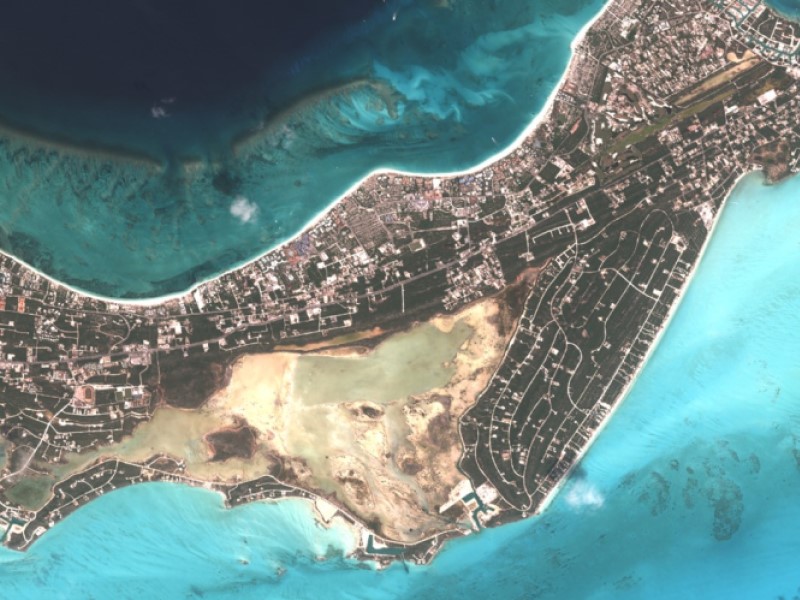
Natural capital assessment, accounting, and mapping approaches provide valuable tools for decision-makers and communities when managing marine resources. Work Package 1 (WP1) delivered an Asset Register, Asset Service Matrix, and Ecosystem Service Delivery Maps.
WP2: Status and Vulnerability Assessments
Status and vulnerability assessments determine the current extent and condition of natural assets. Coral reefs, seagrass, and sand were identified as priority habitats in the waters of the Turks and Caicos Islands. Work Package 2 (WP2) worked with TCI Government staff to develop coastal and marine status and vulnerability assessments for priority habitats.
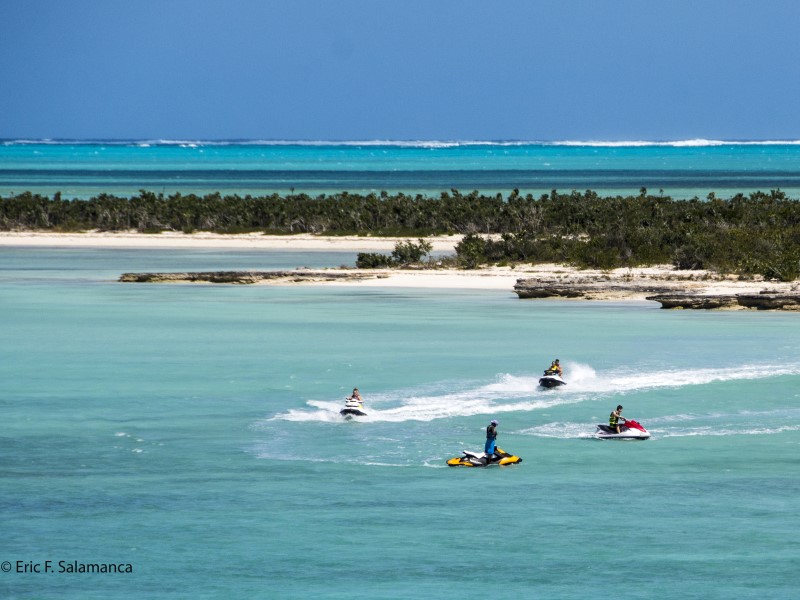
WP3: Marine Indicators
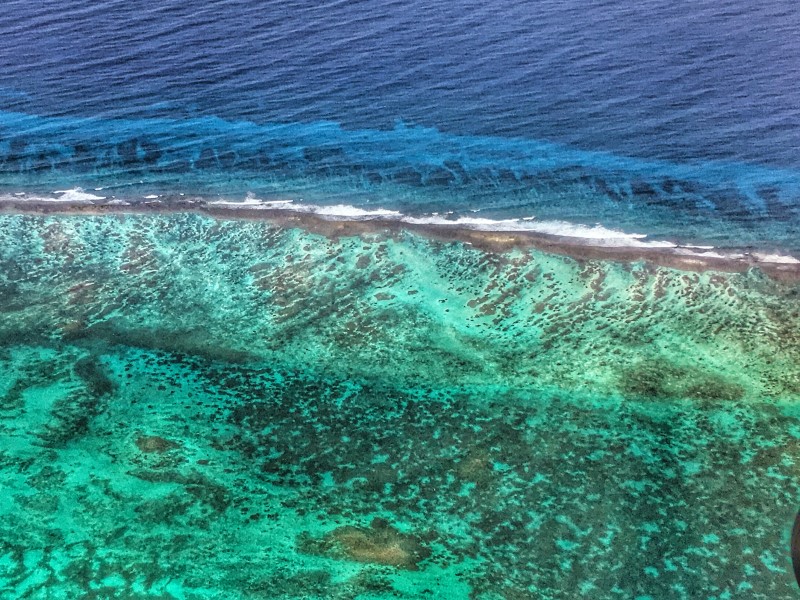
Ecological indicators are tools to identify and measure changes in the status of environmental systems, the pressures on them, and how the systems respond to management. Work Package 3 (WP3) worked with TCI Government staff to develop marine indicators and build a plan for managing indicator data to support the adoption of a monitoring programme for the waters of the Turks and Caicos Islands.
WP4: Knowledge Exchange Programme
Work Package 4 (WP4) supported the promotion of long-term benefits from the methods, tools, and techniques developed during the project by providing capacity building workshops and developing guidance manuals across the technical Work Packages. WP4 also focussed on raising awareness among communities of the services provided by coastal and marine environments.
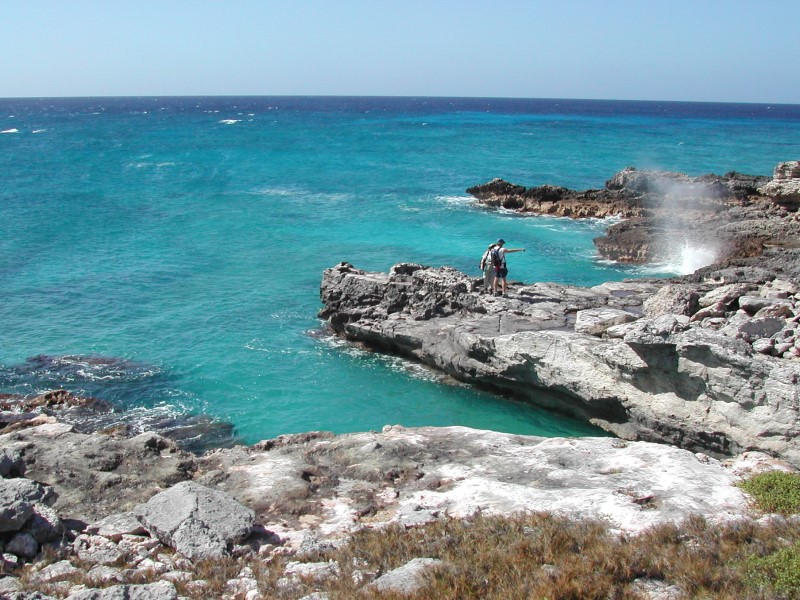
Related Work
This project builds upon the Natural Capital in the Caribbean and South Atlantic Overseas Territories: Valuation, Vulnerability and Monitoring Change programme undertaken between 2016 and 2019 and funded by the Conflict, Stability and Security fund (CSSF). It also builds upon the outputs of the Environment Systems-led and Darwin Initiative funded project: Mapping for evidence based policy, recovery and environmental resilience (DPLUS081, 2018/20).
Project delivery and outputs will maintain links with other projects being undertaken in the Turks and Caicos Islands which JNCC lead or partner in, including:
CSSF Funded
- Implementing Coral Reef Action Plans for the UK Overseas Territories Coral Reef Initiative (JNCC-led, 2021/22).
- Climate change adaptation and hurricane disaster resilience in the Caribbean and Western Atlantic Overseas Territories (JNCC-led, 2021/22).
Darwin Initiative Funded
- Caribbean Overseas Territories Regional Natural Capital Accounting Programme (DPLUS108, eftec-led, 2020/22).
- Developing Marine Spatial Planning tools for TCI (DPLUS094, SAERI-led, 2019/20).
- Collaborative approach to managing coral disease in UK Overseas Territories (DPLUS147, JNCC-led, 2021/24).
- Conserving tropical marine ecosystems in TCI through science-based fisheries management (DPLUS153, SAERI-led, 2021/23).
- Understanding Ramsar wetland dynamics for marine conservation and environmental resilience (DPLUS129, Environment System-led, 2021/23).
Project Partners and Funders
Project Management Group
The role of the Project Management Group (PMG) was to monitor and steer project direction and delivery, and ensure the project aligned with and maximised outputs from related projects. Members of the PMG included representatives from JNCC, DECR, SAERI, and technical leads when required.
Project Advisory Group
The role of the Project Advisory Group (PAG) was to provide a participatory forum for sharing information, advice, and expertise relating to project activities and provide feedback and review of project deliverables. Members of the PAG included project partners, technical leads, representatives from the government of the Turks and Caicos Islands, non-government organisations, research institutes, and industry members.

This project was funded by the Darwin Initiative through the UK Government Darwin Initiative’s project DPLUS119.
Published: .
